Diseases are prone to outbreaks in collective environments.
According to Dr. Dong Phu Khiem, Deputy Director of the Intensive Care Center of the Central Hospital for Tropical Diseases, the patient admitted to the hospital showed clear signs of meningitis, deep coma causing congestion and respiratory failure requiring ventilator support. The patient had scattered hemorrhagic rash on the skin, suggesting the possibility that the cause of the disease was meningococcal bacteria. Tests determined that the patient was infected with meningococcal bacteria, and was isolated and actively treated. After 5 days of treatment, the patient's condition improved significantly, the patient was awake and was taken off the ventilator. The patient has now recovered and been discharged from the hospital.
Male patient with meningococcal disease is treated at the Central Hospital for Tropical Diseases
Photo: Thanh Dang
Associate Professor, Dr. Nguyen Kim Thu, Head of the Department of General Infections, National Hospital of Tropical Diseases, informed: Meningococcal meningitis is a dangerous acute infectious disease caused by the bacteria Neisseria meningitidis. The disease is transmitted through the respiratory tract through direct contact or droplets. If not treated promptly, the disease can cause meningitis, sepsis and many dangerous complications, even death.
Symptoms usually begin suddenly and include fever, headache, sore throat, nausea, and vomiting. The patient may also develop a stellate purpura on the skin. If the disease progresses severely, the patient may become comatose, have convulsions, lose consciousness, develop sepsis, and die quickly. Those most susceptible to the disease are children aged 6 months to 3 years, adolescents, and people with weakened immune systems. The disease can easily break out in collective environments such as schools, dormitories, barracks, and industrial zones.
According to the National Hospital for Tropical Diseases, meningococcal vaccination is an active and effective preventive measure. In addition, it is necessary to maintain personal hygiene habits, keep the living environment clean, wear a mask when in close contact with sick people and use preventive medicine if there is a risk of exposure.
Because the disease progresses very quickly, people need to go to a medical facility immediately when there are suspicious signs for timely examination and treatment.
Infection but no symptoms spread the disease
According to the Department of Disease Prevention ( Ministry of Health ), meningococcal meningitis is an acute bacterial infection that occurs suddenly with symptoms of fever, severe headache, nausea and vomiting, stiff neck, often with asterisk-shaped rash or possibly blisters.
Patients are often lethargic or comatose. In some cases, symptoms include sudden fatigue, hemorrhagic plaques, and shock. If detected early and treated aggressively, the mortality rate is 5-15%.
Meningococcus causes a variety of symptoms such as: acute purulent meningitis, meningococcal bacteremia, meningococcal arthritis, meningococcal endocarditis. In addition, many people infected with meningococcus only have fever and nasopharyngitis. In places where the disease is endemic, the number of people infected with meningococcus in the pharynx and throat without clinical symptoms accounts for 5-10%.
The reservoir of meningococcal bacteria in nature is humans. Therefore, the main source of infection is patients and healthy carriers. During an epidemic, more than 25% of people infected with bacteria may not have typical clinical symptoms and up to 50% of healthy people carry meningococcal bacteria. These are very important sources of infection in the community. The age group with the highest risk of infection is young people and this age group also has the highest number of healthy carriers.
According to the Central Hospital for Tropical Diseases, Vietnam currently has vaccines to prevent meningitis caused by meningococcal serogroups B and C; and meningococcal serogroups A, C, Y and W135... Depending on the type of vaccine, vaccination will be prescribed for children from 2 months old to people 55 years old, vaccination staff will provide specific advice.
Source: https://thanhnien.vn/vi-khuan-gay-benh-nao-o-nguoi-tre-185250416195312415.htm


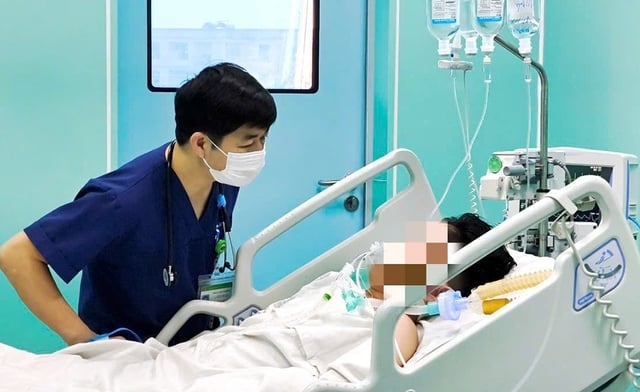
![[Photo] Nhan Dan Newspaper launches “Fatherland in the Heart: The Concert Film”](https://vphoto.vietnam.vn/thumb/1200x675/vietnam/resource/IMAGE/2025/10/16/1760622132545_thiet-ke-chua-co-ten-36-png.webp)







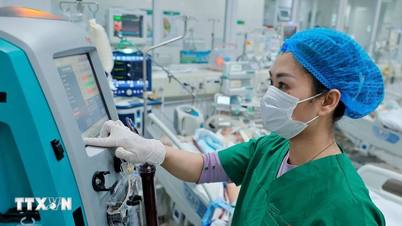
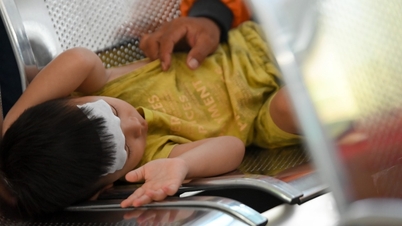


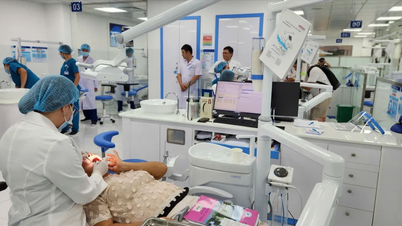






















































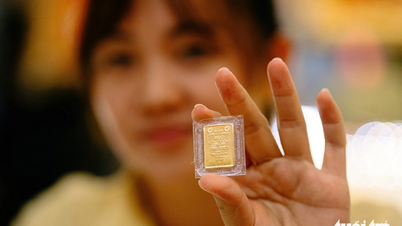



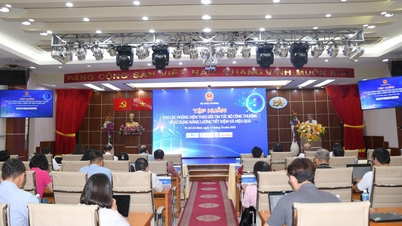







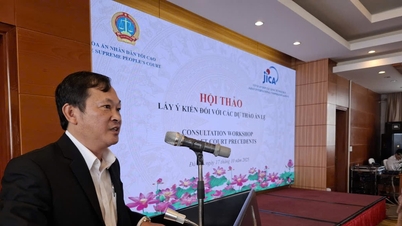







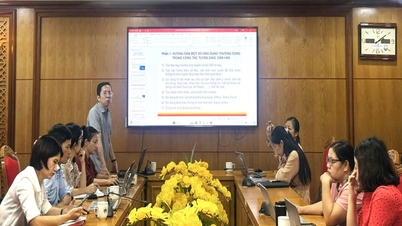















Comment (0)